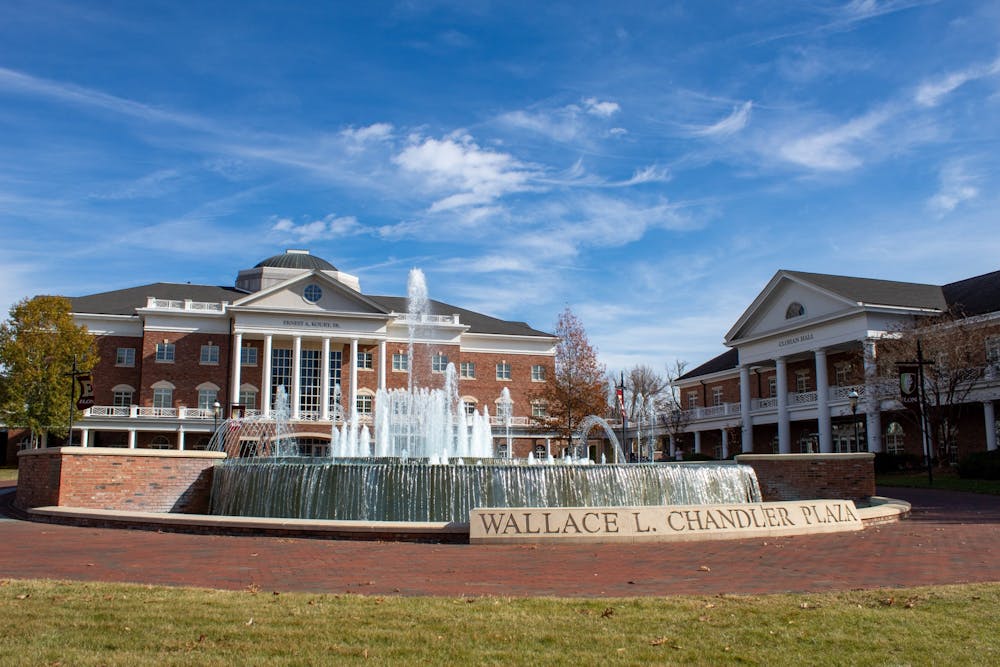Elon University was granted reaccreditation after an examination of 73 measures of quality — ranging from academic affairs, to student life, administration and governing boards.
Accreditation displays that a university upholds the standards of quality education and actively carries out its mission statement. According to Jessica Platania, associate provost for academic affairs, universities that fail to be granted accreditation cannot provide federally-funded financial aid to students, and credits earned are not recognized by any other institution if students are to transfer.
University President Connie Book said in a message to the Elon community on Dec. 6 that this reaccreditation “affirms our leadership position as a university where academic excellence and student success are at the forefront.”
U.S. and Latin American universities gain accreditation from one of seven regional agencies. The southeast, including universities in North Carolina, gain regional accreditation through the Southern Association of Colleges and Schools Commission on Colleges.
The SACSCOC’s self-proclaimed core values are integrity, peer review/self-regulation, student learning, continuous quality improvement, accountability and transparency.
Platania was involved in Elon’s preparation for reaccreditation, which included a written self-assessment submitted 15 months in advance, an on-site reaffirmation review and a review by the SACSCOC Board of Trustees. She said the process involves everyone on campus.
The on-site reaffirmation review took place in March of 2023, when a committee for the SACSCOC visited campus for a few days. Platania said the committee had discussions with administrators and faculty and lunch with a group of student leaders from campus.
An element assessed in the reaffirmation of accreditation process is the university’s quality enhancement plan, or QEP, since the last reaffirmation. According to the SACSCOC webpage on the reaffirmation process, the QEP “focuses on improving specific student learning outcomes and/or student successes, commits resources” and “includes a plan to assess achievement.”
“The QEP is supposed to be this thing that touches everybody, and that everybody on campus knows about,” Platania said. “It’s not supposed to be just something that a handful of people do. They really want to see that the QEP is something that is embraced by the entire campus.”
As part of the onsite review, Platania said committee members will stop students, faculty, and staff they see walking around campus and ask if they know what the university’s QEP is, or what their strategic plan is.
“They know that we’re going to put our best students in front of them… so sometimes they just want to know, ‘What does a random student on campus know?’” Platania said. “The committee had only wonderful things to say about their interactions with the students, faculty and staff they engaged with while on campus.”
For the two weeks in March before the on-site visit, lawn signs were set up around campus that said, ‘QEP: Building Data Competency’.
“Students couldn’t help but see it,” Platania said. “So if a student did get stopped and they said, ‘Hey, do you know what the QEP is,’ the hope was that they could think back and be like, ‘Oh yeah, I saw that sign, I think it’s building data competency.’... We had to be ready for anything.”
After the off-site review of the written report, the SASCOC sends back a list of noncompliances, which are minor aspects of the QEP the committee would like further discussed during the on-site visit or other elements that needed more evidence or evaluation. During the meeting announcing the reaccreditation to Book, Platania, and senior staff, the SASCOC said the average amount of noncompliances for universities is 15.7. Elon University only received four — one of which regarded a financial report that was unavailable at the time.
“They had nothing but glowing things to say,” Platania said. “We felt really confident when they left. We expected good news, but you never know. You just feel a whole lot better when you actually hear it official.”
According to institutional research, Elon University was first accredited by the SACSCOC in 1947 and underwent close evaluation before being reevaluated every 10 years — with the last reaffirmation being in 2013. An additional self-evaluation report on the progress of the university’s plans is required every five years, but a university cannot lose its accreditation due to incompetence on this report.
A university can lose its accreditation from the SACSCOC when it fails to show evidence of success or progress in its plans to carry out its QEP and mission statement during its 10th year reaccreditation process, according to the SACSCOC webpage. Elon University has been reaffirmed in its accreditation every cycle.
The SACSCOC and other regional accrediting agencies are recognized and overseen by the United States Department of Education, but this branch of the federal government does not directly intervene.
“The government is not necessarily in the business — nor probably do they want to be, nor should they be — of accrediting institutions of higher education directly,” Platania said. “So what they do is they rely on these regional accrediting bodies.”
Elon University’s next reaccreditations are by the Accrediting Council on Education in Journalism and Mass Communications in May 2024 and the Association to Advance Collegiate School of Business in June 2024.


